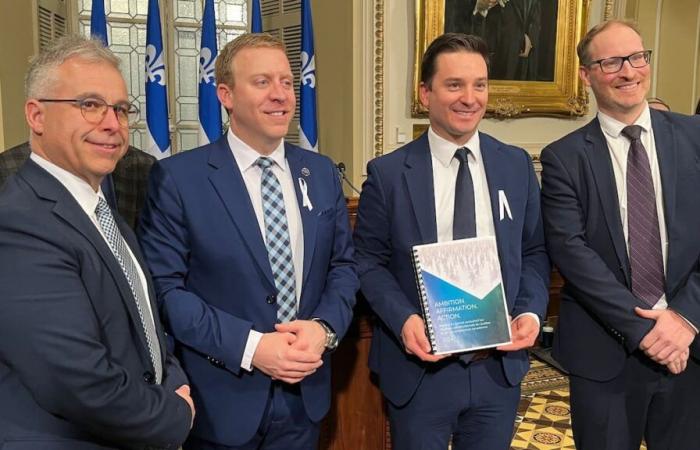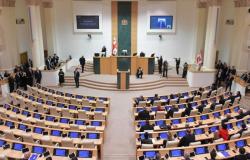The committee on Quebec autonomy is proposing the adoption of a Quebec constitution and a framework law on constitutional freedom in order to counter Ottawa’s attempts at interference.
Chaired by former Liberal minister Sébastien Proulx and law professor Guillaume Rousseau, the committee mandated last June officially submitted its report to Minister Simon Jolin-Barrette on Tuesday.
Rather than new multilateral negotiations carried out by several people, like the unfortunate Charlottetown and Meech agreements, he suggests a series of actions to be taken, either unilaterally, or within the framework of negotiations only with Ottawa.
“We believe that constitutional issues do not have to be resolved all together in one big evening or in a complex procedure beyond our control. We believe that Quebec can and must act when it is appropriate and when it decides to do so unilaterally,” declared Sébastien Proulx when presenting the report to the Minister of Justice.
Constitution
Thus, the drafting of a constitution would make it possible to “entrench the notion of Quebec citizenship” and describe the “specific characteristics of the Quebec nation” such as the French language and civil law.
The document would also specify the symbols that represent Quebec (motto, flag, etc.) as well as its fundamental laws (Charter of Human Rights and Freedoms, the Charter of the French Language and the Law on State Secularism).
For its part, the framework law on constitutional freedom would make it possible to “prevent federal interference by making the defense and increase of Quebec’s constitutional freedom a responsibility shared by all ministries and public bodies.”
“Each organization, each ministry will be called upon to adopt action plans, to be accountable so that the entire Quebec state is truly in line to defend the constitutional freedom of Quebec,” explains Guillaume Rousseau.
Other recommendations also propose increasing Quebec’s fiscal autonomy.
To do this, the Proulx-Rousseau committee suggests “challenging in court the constitutionality of federal initiatives arising from the federal spending power.”
Quebec, he adds, should also put forward a constitutional amendment in order to obtain a right of withdrawal with full compensation.
Legault enthusiastic
Unsurprisingly, Prime Minister François Legault welcomed the committee’s conclusions.
“We will analyze these recommendations in detail and it is certain that all measures to strengthen Quebec’s autonomy are welcome, including the possibility of having a Quebec Constitution,” he briefly commented on Tuesday.
For his part, Minister Simon Jolin-Barrette saw this as an invitation to continue on the path traced by the CAQ in constitutional matters since coming to power.
“The committee says: since 2018, the government of Quebec has taken the approach of a third way and we must continue on this path,” he notes.
Other recommendations from the report
- Modernize existing Quebec laws to remove any monarchical reference or expression arising from colonial legacies.
- Modify the Quebec Charter so as to ensure an interpretation of rights and freedoms distinct from that of the Canadian Charter.
- In the event that attempts to empower the Quebec Charter fail, consider renewing the notwithstanding clause for all Quebec laws.
- Challenge in court the non-compliance with the principle of equalization and the ceiling currently imposed.
- Begin negotiations with the federal government to withdraw from the Canada transfer for social programs in exchange for increased fiscal space for Quebec.
- Establish a process to designate the lieutenant‐governor of Quebec at the end of which a formal recommendation would be sent to the federal authorities.
- Replace the title of lieutenant‐governor with a name reflecting the modest role played by the latter and eliminating the apparent subordination to the governor general.






